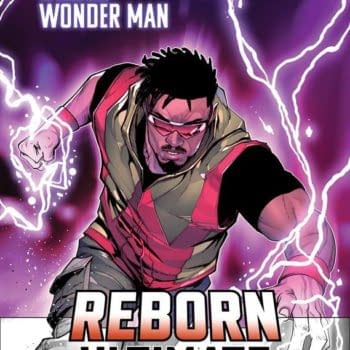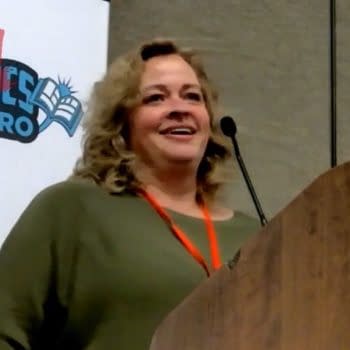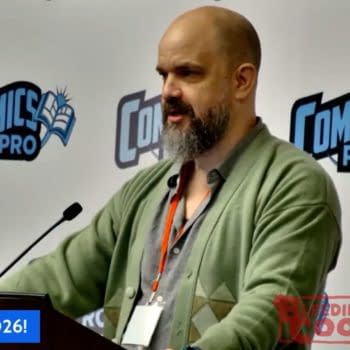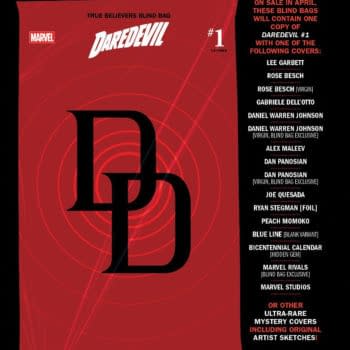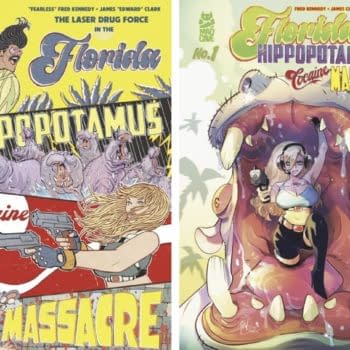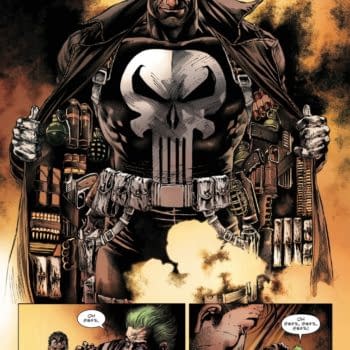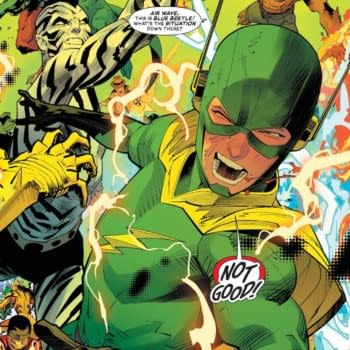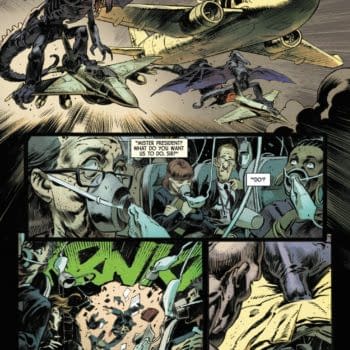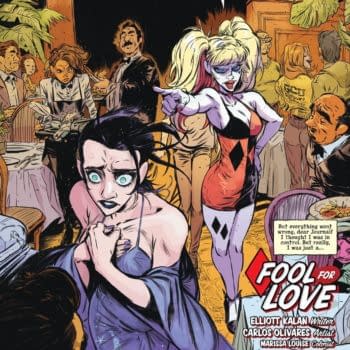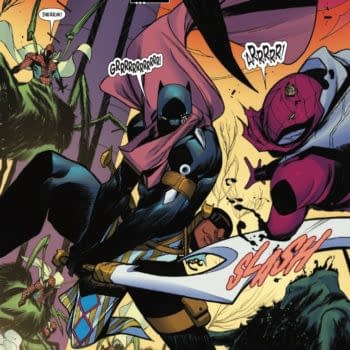Posted in: Comics | Tagged:
Opening Statements in Salt Lake Comic Con vs San Diego Comic-Con, as Rose City Comic-Con Does a Deal
This week saw opening statements in the trademark court battle between San Diego Comic-Con and Salt Lake ComicCon over the ComicCon trademark.
Callie Bjurstrom, attorney for San Diego Comic-Con told jurors that Salt Lake Comic Con hijacked the Comic-Con trademark. That it "remained a small, intimate comic convention for decades" and that it wasn't until the early 2000s that "the secret was out: Comics were cool and Comic-Con was the place to be to catch what was hot and what was next". And as hundreds of similar conventions sprang up in cities across the country, Salt Lake Comic Con tried to "hijack" the trademark, to "steal the Comic-Con brand" saying "You don't need to use 'Comic-Con' in your name to identify your comic and popular-arts convention… Convention is a generic term. Comic-Con is a brand" and that Salt Lake Comic Con is duping consumers into believing their events are associated, especially when they parked an Audi convertible near the San Diego Convention Center during the 2014 show, wrapped with promotions for the Salt Lake event.
SDCC commissioned a study that showed 82 percent of consumers recognize Comic-Con as a brand – a higher brand recognition rate than Jello and that "You don't take or steal something that's not valuable."
Attorneys for the Salt Lake Comic Con and Dan Farr Productions said the phrase has become generic, part of the public commons, and therefore unprotectable.
Michael Katz with Maschoff Brennan said that "Comic Con" is a generic term used to refer to a type of convention and that the show "looked to the industry" in naming their convention in 2013. "They used the same formula: Salt Lake to refer to where they were, and Comic Con to refer to what they were". That Comic Con was a "national brand" and there could be no confusion between the one in San Diego and the one in Utah, which he called a "flyover state", and that theirs was a "homegrown" event where four out of five attendees came from Utah, and it was so specific to the state that it didn't run on Sundays because of Utah's large religious population. And that "I don't think we're here because of large numbers of people confusing San Diego Comic-Con with Salt Lake Comic Con. … They have not been harmed by little Salt Lake. They have not lost a single customer to us. We are small potatoes".
Not sure that what they were doing advertising outside San Diego Comic-Con fits that picture though.
Many events also use "Comic Con" in their titles and indeed in their trademarks, and a success by San Diego may lead to more lawsuits. However some have got in first, with Rose City Comic Con stating that "Rose City Comic Con, Portland, Oregon's largest comics and pop-culture convention, is proud to announce its association with San Diego Comic Convention for its three-day event taking place September 7-9, 2018 at the Oregon Convention Center. Rose City Comic Con received the license at no additional cost to the show, and acknowledges the trademark owned by San Diego Comic Convention and is excited to affiliate itself with the prestigious event."
"Comic-Con, the San Diego convention, is without question the biggest and most important event in the comics and popular arts industry every year. To have the respected event recognize the hard work of Rose City Comic Con by providing a license agreement is really remarkable for the city of Portland and the incredible community of creators we're lucky to have here," said Rose City Comic Con founder Ron Brister.
"Comic-Con has a long history of producing conventions that have a high standard with regard to programming and exhibitor involvement," said David Glanzer, chief communications and strategy officer for San Diego Comic Convention, "we are thrilled that Rose City Comic Con has met and continues to meet that high standard."
Which is another, cheaper, way of doing it than going to court…







